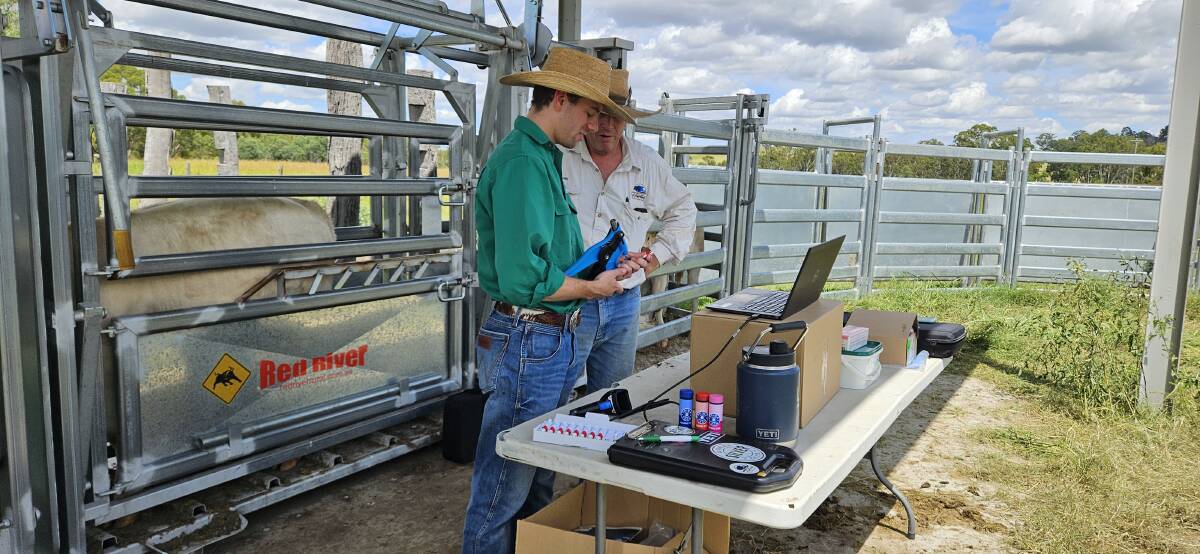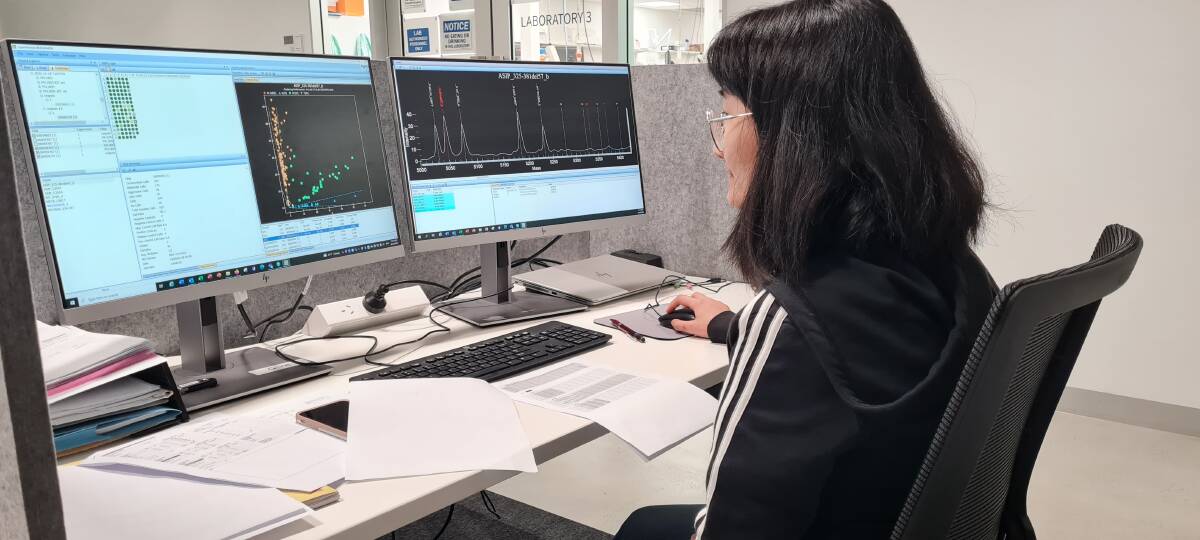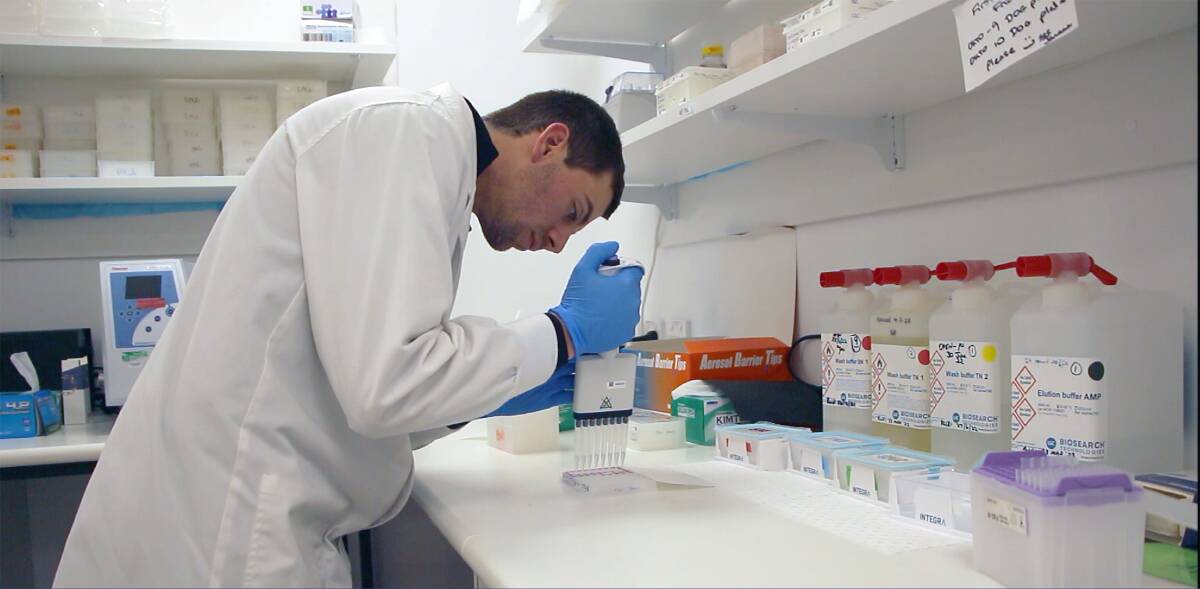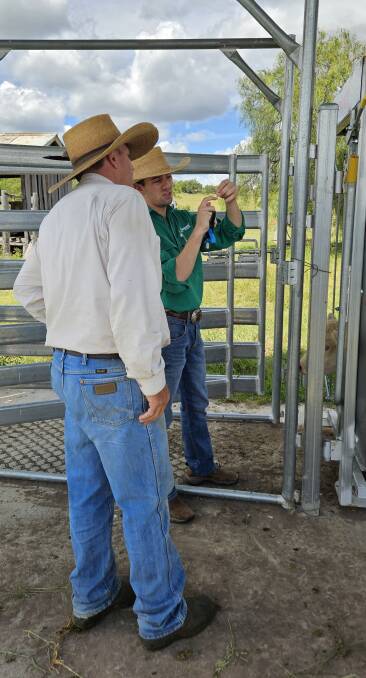Genomics work goes national

This is branded content for Neogen
THERE would be more than one beef producer out there who still refers to the "UQ lab" when it comes to genotyping. That fond habit stems from a trust established for the cattle genomic service, Neogen.
While the company offers a range of services, its genomic testing has an established reputation within the beef sector for guiding informed breeding for healthier, more profitable herds.
The company started out as Animal Genetics Laboratory (AGL) in 1985 at the University of Queensland (UQ), thus the "UQ lab" heritage.
Neogen purchased the AGL business from the university in 2017 off the back of the long tradition of quality research conducted by UQ, and things have continued to expand.
After Neogen purchased the business, the 13 original staff moved into a slightly bigger building on campus to fit its growing needs, including hiring new staff members and expanding the capacity of the lab.
In 2018 the first territory manager was hired to work with producers in the field.
Fast forward to early 2022 and the Neogen team moved to a custom-built lab in Bundamba, Qld after outgrowing the space at UQ.
Today Neogen is home to more than 85 staff (including six genomic territory managers around the country) split into Livestock and Food Safety Divisions, using science to enhance the food supply chain from paddock to plate.

The genomics team focuses on servicing the wider livestock sector including beef, sheep, dairy, pigs and companion animals.
Head of the Australia and New Zealand livestock division, Hannah Bourke, said Neogen's global network has allowed it to bring Australian producers access to new genomic products and services, working with research and development teams around the world.
"We operate the largest livestock genomic lab in the southern hemisphere, working to the highest standards in the world, with support from a global network that is second to none," Ms Bourke said.
"As a result, our customers in Australia and New Zealand have access to the latest and most appropriate testing options for their specific objectives."
Embracing genetic evaluation tools, such as the use of genomically enhanced breeding values when selecting breeding animals, is very important as it enables Australian livestock producers to more accurately identify animals with genetics that are aligned with their desired breeding objective.
- Andrew Byrne, senior technical product specialist - genomics, Neogen
The international size of the company is balanced by an emphasis on working with industry bodies and stakeholders to develop local solutions for local needs.
Neogen works in partnership with the majority of beef breed societies in Australia and New Zealand.
The company holds regular lab tours for breed societies and members, along with workshops and information days for breed society staff and other industry stakeholders.
The territory manager team around Australia works closely with seedstock and commercial producers to assist in DNA sample collections, answering queries and talking at local events.
Ms Bourke there had been a steady increase in the adoption of genomic technology in the seedstock beef industry throughout Australia, with many catalogued bulls for sale either genotyped or sire verified (or both).
"Adoption in the commercial space has been a little slower than our counterparts in the US, but is certainly on the radar for Australian commercial beef producers wanting to have more insight into the female side of their herd," she said.
Better breeding data should propel industry
Embracing the benefits of breeding data will continue to push the industry forward, according to Neogen's senior technical product specialist - genomics, Andrew Byrne.
"Embracing genetic evaluation tools, such as the use of genomically enhanced breeding values when selecting breeding animals, is very important as it enables Australian livestock producers to more accurately identify animals with genetics that are aligned with their desired breeding objective," Mr Byrne said.
"More accurately identifying animals with desired genetics results in greater genetic improvement, which ultimately increases the profitability and productivity of the livestock enterprise.
"Genomically enhanced breeding values enable livestock breeders to make more accurate selection decisions, at an earlier age, and for important hard-to-measure traits that may not be routinely measured on-farm."
While genetic evaluation tools have traditionally focussed on traits associated with profitability, genomically enhanced breeding values are increasingly being developed for traits associated with sustainability and animal welfare, such as feed efficiency, methane emissions, disease resistance and heat tolerance.

"Embracing these new tools when selecting breeding animals will be of increasing importance into the future, particularly in seedstock breeding operations," Mr Byrne said.
Nowhere was the interest in genomics more evident than at Beef 2024 in Rockhampton in May.
Mr Byrne, who attended the event, said many in the seedstock industry were familiar with genomic testing and its benefits, but the next wave of engagement in genomic technology is increasingly coming from the supply chain and commercial producers.
"There is definitely a trend overseas for commercial beef producers to use selection tools such as Igenity Beef to fast-track their breeding programs to achieve specific goals more quickly," he said.
"We're starting to see growing interest in that now in Australia, as well as for the breed-specific products developed in partnership with associations such as Angus HeiferSELECT or Wagyu Feeder Check that have been tailored to address their particular needs.
"For example, Feeder Check is a genomic based tool for the early identification of Wagyu first cross feeder steers which have genetics suited to a long fed feedlot program, and those who may be better off being put into a different program.

"Being able to make that call at an early stage can save a commercial operation a lot of money."
Neogen also took the opportunity to embrace future innovations at Beef 2024, announcing its partnership with Black Box Co to provide genotyping services for RePro BI, a product designed for northern Australian cattle producers.
A partnership with Herefords Australia and the Agricultural Business Research Institute (ABRI) for the upcoming product Breedplan Select was announced as well, providing commercial Hereford producers with a genomic profile on animals to assist with making more informed selection and breeding decisions.
It might be nearly 40 years since those initial UQ lab days, but that same spirit of innovation and working on ways to address unmet needs continues.
"That's why having such a strong local presence is so important," Mr Byrne said.
This is branded content for Neogen


